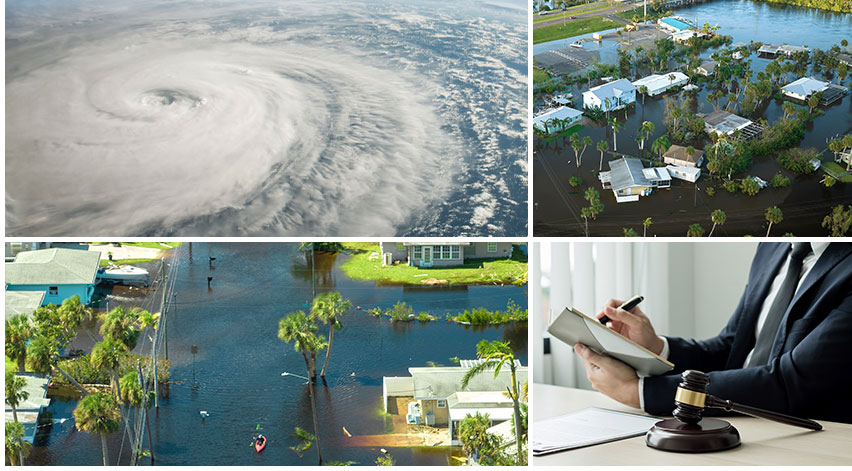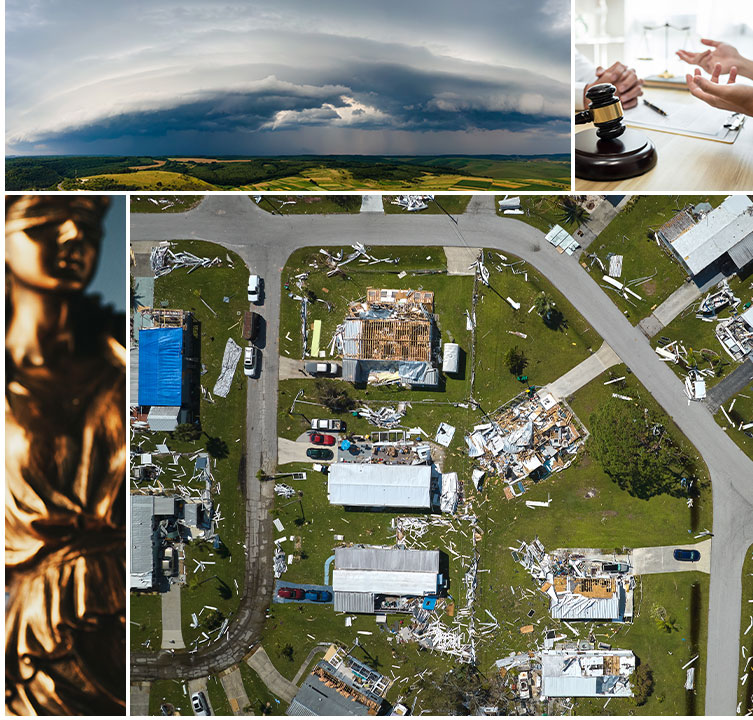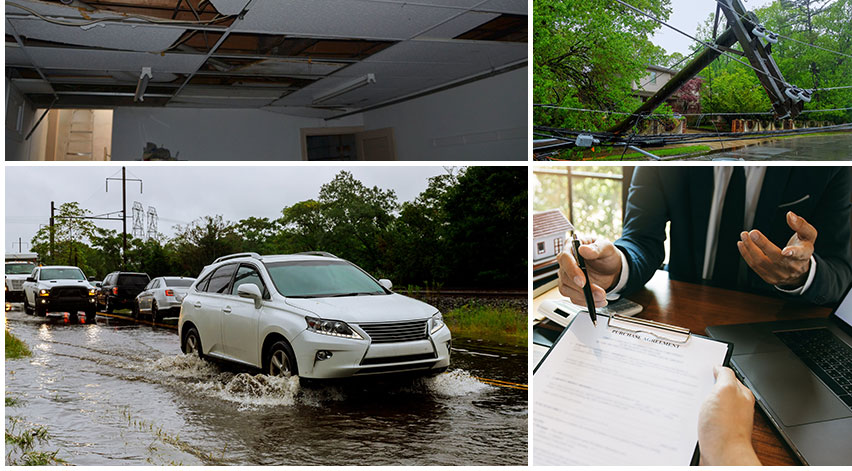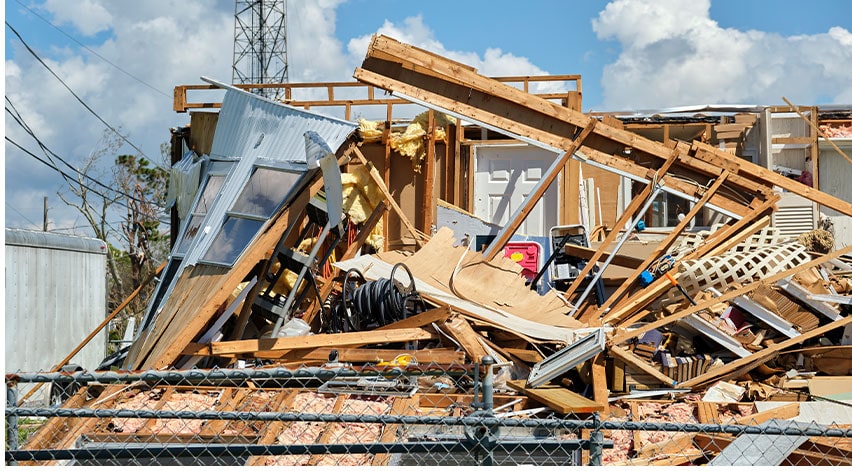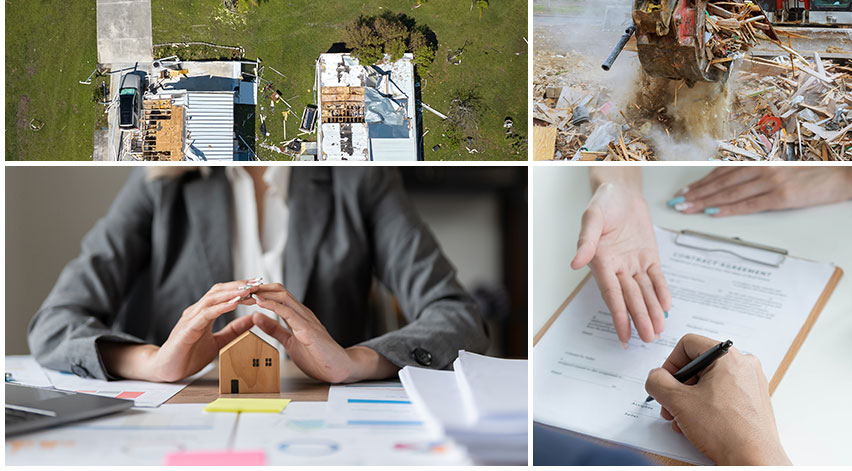FAQ
Does my insurance policy cover flood damage?
Generally, standard homeowners insurance policies do not include flood damage. A basic homeowners policy covers windstorm damage, which is damage that relates directly to a hurricane’s high-speed winds. Individuals require separate flood insurance since homeowners insurance policies exclude flood damage coverage.
However, if there is evidence that water entered through a portion of your property damaged by wind, like a broken window or damaged roof, then your policy should cover it. If the water damage stemmed from rising flood water and was not triggered by the wind, your policy may not pay you.
Can I purchase flood insurance before a hurricane hits?
If weather forecasts predict a hurricane to arrive soon in your area, it is likely too late for you to purchase flood insurance. Flood insurance goes into effect 30-days after the date of purchase.
What does “dwelling coverage” include?
Dwelling coverage applies to your house, including aspects within the home and attached fixtures. Your dwelling coverage may protect your house, attached garage or deck, chimneys, flooring, ceilings, countertops, and so on. Note that dwelling coverage does not extend to “unattached” structures such as a shed or guest house.
Perils covered by dwelling coverage include windstorms (hurricanes and tornadoes), fires, hail, falling objects (like fallen trees), damage caused by motor vehicles, and more. Dwelling coverage does not cover floods, earthquakes, sewer backups, or lack of maintenance. Your exact dwelling coverage depends on your state and policy.
What should I do following a hurricane?
You should only return to your home once officials have authorized it is safe to do so. After you have verified that your home suffered damage, notify your insurance company immediately. The sooner you inform your insurance company, the faster it can address your claim and resolve it. Furthermore, you should review your homeowners insurance policy to understand what your policy does and does not cover. Having a firm grasp on your insurance policy will help prevent you from allowing your insurance company to lowball or deny your claim.
Also, document all of the damage your property sustained. Take photos, create videos, and write logs to compile as much evidence as possible. Additionally, you need to mitigate any further damages to your home. Tarp your roof, board up broken windows, and dry out your home to prevent any more damage.
What should I do if my house is uninhabitable?
Usually, your insurance policy covers “additional living expenses.” Therefore, your policy may cover a hotel or rent for a house or apartment while your home is under repair. Some people cash out their additional living expenses and purchase a trailer to live in temporarily. Regardless of your chosen route, ensure that you save all receipts documenting living expenses.
Additional living expenses sometimes also cover pet boarding costs, food, and moving expenses.
What are common issues people experience with their insurance companies after a hurricane?
Although you have insurance to help you and your property after a hurricane, you may encounter problems with your insurance company. While your company might initially assign you an adjuster who seems kind, do not be fooled. The primary goal of an insurance company is to resolve your claim for the minimum amount. During the claims process, your insurance company may engage in unfair behavior by delaying their response, rotating adjusters, intimidating you, or offering an unreasonably low settlement.
This is not to say that all insurance companies act this way, but these are just some tactics an insurance company might employ to get you to take a lower amount.
When should I expect a response from my insurance company?
The insurance company must either pay or deny your claim within a 90-day timeframe of submitting your claim. If you do not receive payment or a response from your insurance company in 90-days, it may be unfairly delaying your claim. Whether your insurance company delayed, denied, or underpaid your claim, you may want to consider speaking with an attorney who can assist you in contesting your insurance company.
Florida Hurricane Law Center, PLLC Can Help You
We know that insurance claims are complicated, so you might have a lot more questions. The attorneys at Florida Hurricane Law Center encourage you to reach out with any questions or concerns surrounding your hurricane insurance claim. Our helpful and friendly staff is on standby to discuss or review your claim with you.

